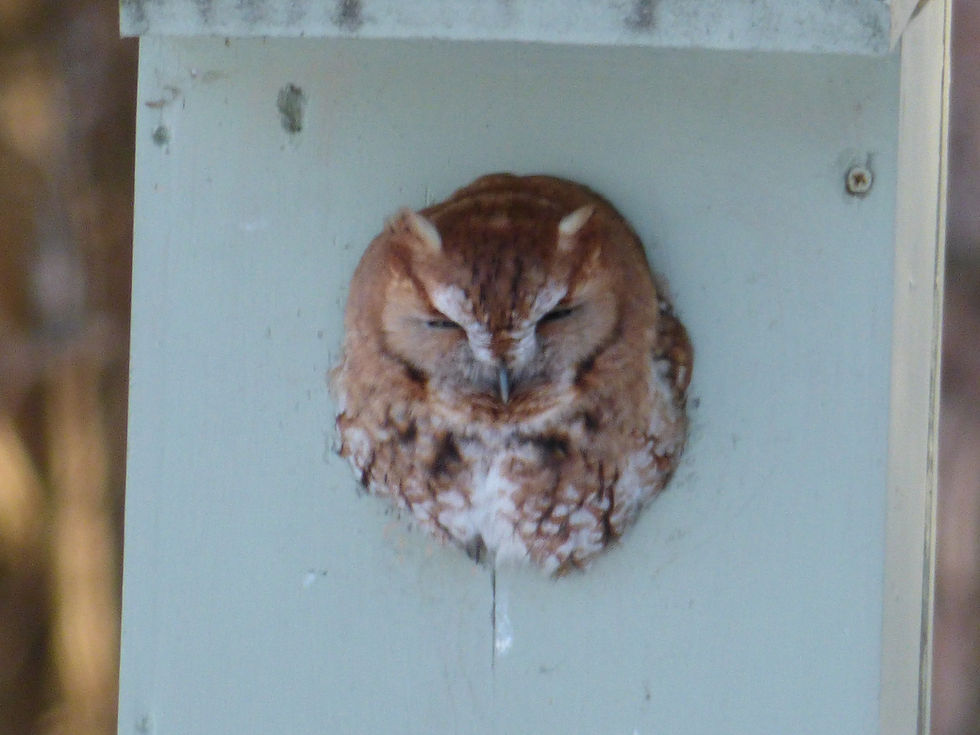Turtles Are On The Move
- wacoutanaturenotes
- Jul 6, 2025
- 3 min read
Updated: Jul 11, 2025

After reaching sexual maturity (5 to 7 years), turtles leave their aquatic habitats and move onto land to find suitable habitats to lay their eggs.
Their nest sites are in open areas such as sandy riverbanks, road embankments and even our lawns. These areas are usually exposed to the warmth of the sun necessary for egg development.

Because we live in close proximity to the river, we have observed a variety of turtles in our yard preparing to deposit their eggs. In addition to snapping turtles, we have seen map and painted turtles on the same mission.
Lakeview Ave has very little traffic compared to Highway 61 adjacent to Wacouta Pond. On Saturday June 14th, we received a call from our neighbor, Tracy Idler, informing us of a large snapping turtle attempting to cross Wacouta Road near the pond.
An hour and a half later as Kathy and I were on our way to Lake City, we observed the turtle in nearly the same location. I stopped and picked it up and moved it across the road in the direction it had been traveling.
At the intersection we turned left onto the highway. By the time we reached the east end of the pond, we came upon two nice snappers flattened on the highway. This is a challenging time for many turtles.

The riverbanks at the Head of Lake Pepin have a limited number of sandy beaches compared to the nearby Cannon River. As a result, leather-back turtles are not observed as frequently as other species. However on June 25th, Nancy Barth of Greens Point reported observing one on her beach.

Nancy once again forwarded news and this photo of a map turtle laying eggs on the beach.
Unfortunately, a few days later the river rose up to four feet due to heavy rains north and west of this area. If eggs are submerged for just a short time, there is little chance of viability.
Turtles laying eggs above future high water events will have much better success rate with hatching.

Turtles laying eggs above future high water events will have much better success rate with hatching.

Based on studies of the Minnesota Department of Natural Resources, up to 80% of turtle nests are lost to raccoon, fox and skunk predation.

With enough sun and natural heat, the tiny turtles will hatch in from 60 to 90 days. Soon they will head for the nearest water. Their survival will depend most on luck.

With cold water of spring, it is quite common on days of sunshine for turtles to try and warm up by climbing up on the nearest log.
Have you ever wondered what is included in the diet of a snapping turtle? They have been known to consume aquatic plants, fish, frogs, snakes, ducklings, crayfish, small mammals and yes, even painted turtles.

In the early years of the Environmental Learning Center,1970 1985, an Annual Awards Banquet was held the first Saturday evening of November at the Twin Bluff Middle School. The featured event included a wild edible foods tasting buffet for as many as 350 attendees.
All foods served at the banquet had been harvested at appropriate times by ELC participants. The meal was prepared by the staff at the school cafeteria.
A typical menu might have included wild leek stew, watercress salad, milkweed buds topped with cheese sauce, home smoked venison sausages and yes oven-roasted turtle.
Dessert-- Cannon Valley Flaming Ice Cream topped with rose-hip syrup.
Beverage -- Sumac Lemonade
This popular event came to a screeching halt with legislation requiring all
food brought into the school cafeteria to be thoroughly inspected.

Since my last post, there have been several new prairie forbs that have started to bloom in the Wacouta Prairie. The brilliant flowers of this plant attracts butterflies, hence the name.
Native Americans chewed the tough root of this plant to treat pulmonary ailments. For that reason, this plant is sometimes called Pleurisy Root.

These native prairie biennials are native to much of North America.

This plant is one of the most widespread perennial prairie clovers in our part of the state.




Thank you Bruce Always so informative
I really look forward to each new edition
Arlene Moshfeghi
I'd not heard Butterfly Weed called Pleurisy Root and am curious how the native peoples would prepare if for treating pulmonary conditions. Always interesting and always informative, Bruce. Please do this forever. Marty
Love learning about the turtles
Terrific pictures from Nancy
I have spotted one turtle crossing our lawn so far this season
It is always a joy to see the Monarch Butterfly’s!